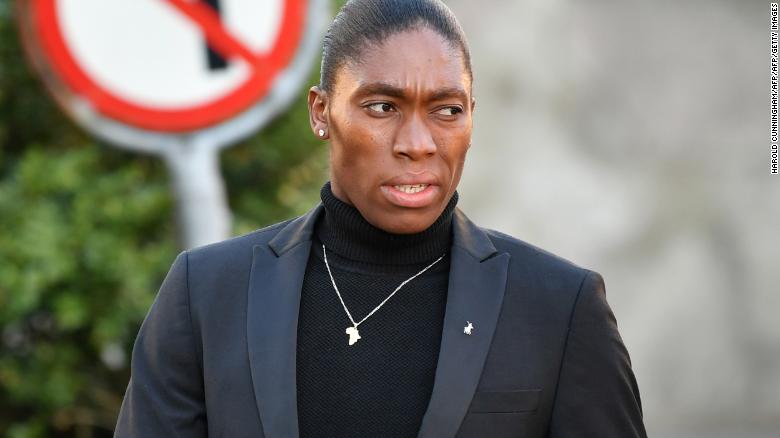
Caster Semenya has lost her appeal to Switzerland’s Federal Supreme Court against World Athletics’ regulation restricting testosterone levels in female runners.
The rule which was introduced in 2019 barred Semenya from competing in events between 400m and a mile without taking testosterone-reducing drugs.
Athletics’ governing body brought in a rule that athletes with differences of sexual development (DSD) must either take medication in order to compete in track events from 400m to the mile, or change to another distance.
Testosterone increases muscle mass, strength and haemoglobin, which affects endurance.
Some competitors have said women with higher levels of the hormone have an unfair advantage.
Semenya approached the tribunal in May last year after CAS, sport’s highest court, had ruled that the regulations of the sport’s governing body World Athletics were necessary for athletes with differences in sexual development (DSDs) in races ranging from 400 metres to a mile to ensure fair competition.
The tribunal found the requirement of subjecting certain female athletes to drug or surgical interventions as a precondition to compete does not amount to a violation of Swiss public policy, Semenya’s lawyers said in a statement on Tuesday.
“I am very disappointed,” the 29-year-old South African said.
“I refuse to let World Athletics drug me or stop me from being who I am.
“Excluding female athletes or endangering our health solely because of our natural abilities puts World Athletics on the wrong side of history,” Semenya added.
“I will continue to fight for the human rights of female athletes, both on the track and off the track, until we can all run free the way we were born.
“I know what is right and will do all I can to protect basic human rights, for young girls everywhere.”
Since the rule was introduced, Semenya, who won Olympic gold in the 800m in both 2012 and 2016, has been unable to defend her world 800m title in Doha last year.
But the South African has indicated that she may continue her battle in the European and domestic courts ahead of the Olympics in Tokyo next year.
Her lawyer, Greg Nott, suggested this was far from the end of the road for Semenya.
“This setback will not be the end of Caster’s story,” he said.
“The international team (of lawyers) is considering the judgment and the options to challenge the findings in European and domestic courts.”
In a statement, World Athletics said: “For the last five years World Athletics has fought for and defended equal rights and opportunities for all women and girls in our sport today and in the future.
“We therefore welcome today’s decision by the Swiss Federal Tribunal to uphold our DSD regulations as a legitimate and proportionate means of protecting the right of all female athletes to participate in our sport on fair and meaningful terms.”
The Swiss Supreme Court said: “Fairness in sport is a legitimate concern and forms a central principle of sporting competition. It is one of the pillars on which competition is based.”
The ruling means Semenya will not be able to defend her 800m title at the rearranged Tokyo Olympics next summer.
In March, she said she wants to compete in the 200m in Tokyo, a distance for which she would not need to take medication.
To be able to compete, she would have to run a qualifying time of 22.80 seconds, although her current best is 24.26secs.










